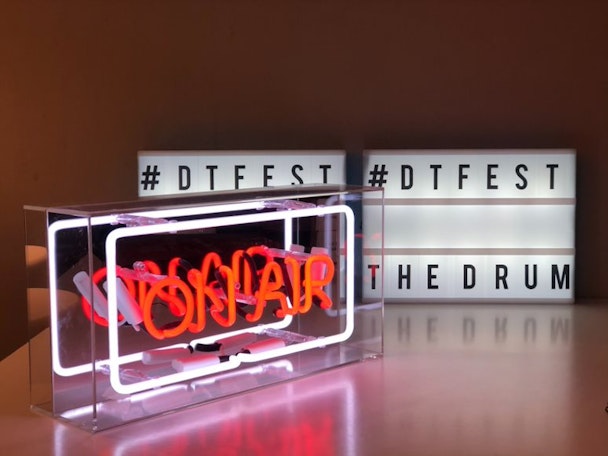Five takeaways from running The Drum's Digital Transformation Festival
As The Drum's Digital Transformation Festival catch-up hub goes live, allowing you to watch more than a hundred interviews with industry leaders and lively panel sessions on demand, Lynn Lester reflects on what she's learned from hosting our first virtual event.

What does digital transformation have in common with allowing your kids to shave your head, still having a full tank of petrol after three weeks and surviving on the basics with no over-indulgence? Covid-19 of course. It has been one of the biggest threats but also biggest drivers of change in our lifetimes, and every business needing to survive is pivoting fast right now.
Our own transformation journey resulted in The Drum's Digital Transformation Festival, a virtual event sharing stories, advice and insights from brilliant brands and leading lights from across the industry.
I was very fortunate to watch every single session we produced for the afternoon recaps that I recorded each day. Topics ranged from how the automotive industry is evolving to the repurposing of music in a world where gatherings are currently forbidden, fake news, threats facing media businesses and how brands are engaging with communities and consumers.
Here I have condensed many hours of content down to five key takeaways that resonated with me the most.
What do we mean when we say digital transformation?
This question was posed to some of the most senior people in the industry, from agency leaders to brand CMOs and it was clear that it’s a term that signals much confusion because it means many things to many people. The consensus is that it’s about driving significant change internally and externally, and while tech is the enabler, it should not be the first element you focus on. Spearheading any transformation project has be someone with internal influence because for it to be successful, you must get the buy-in from your own people first.
But given that 'digital' transformation is such an ambiguous term, shouldn’t we be changing it to something that makes more sense instead?
You have the permission to change
Right now, people have never been more understanding, open-minded and forgiving. This means that brands, and any business for that matter, have the permission to try, test, learn, adapt, and try again.
Marketing departments all over the world are modifying comms plans continually as they try and hustle their way out of this crisis. They are more agile, collaborating closer with trusted partners and being bolder than ever before. Some brands and agencies have even produced TV and integrated campaigns within one or two weeks, which raises the question of whether the industry will adapt its pace permanently.
The bottom line is that if there was ever a time to try something new, now is your chance.
But whatever we do, we must be mindful and supportive of the people around us: staff, clients and partners who are trying to adjust to a life that is unpredictable and scary at times.
Data, data, data
This seems to be the holy grail right now. What do your customers think? How do they feel? How are they behaving? It seems obvious but brands are in desperate need of more insights than ever before and those worth their salt are using listening tools to inform their next communications move. As Pete Markey, chief marketing officer of TSB put it: "Brands have a danger of zigging whilst their customers are zagging."
There is also huge opportunity to own the search space, ensuring your brand is the authoritative voice when people are asking questions online, instead of giving leeway to fake news and misinformation or competitors.
Brand safety, however, continues to throw up a whole layer of complexity, with the blocking of covid-19 related keywords resulting in the missed opportunity of ads being seen in safe environments and in turn, publishers suffering the financial pain.
Pitching of the future
Video calls, no travel and working from home in a smart top and PJs on the bottom is the ‘new normal’ right now. And so is remote pitching, where some big accounts are being won during lockdown.
The use of technology to secure top talent will continue to make this format a preferred option for many, whereas others will of course opt back to the face to face experience.
Either way, remote pitching has forced new creative thinking and has saved an awful lot of money and travel time in the process.
Be human and offer value
According to a recent Kantar survey, 92% of consumers think brands should still be advertising.
It is important that brands continue to entertain, inform, and inspire but steer clear of preaching, said our festival contributors. Instead, add value to people and their lives by bringing music into homes, offering recipe ideas and entertainment suggestions to keep the kids amused.
In Asia, Lazada and Pomelo are focussing on livestreaming to bring their e-commerce proposition to life by humanising the brands they work with and allowing the consumer to see the real people behind the scenes.
Then you have brands such as the Co-operative which has partnered with FareShare, a charity that supports foodbanks, to Everton FC, which is working in the community and even calling its older fans to lend an ear and make sure they are coping.
If Covid-19 has taught us anything it’s that whatever we do now to build consumer sentiment will pay dividends in the future as the world starts to recover and people begin to get back on their feet.
Lynn Lester is managing director of live events at The Drum

